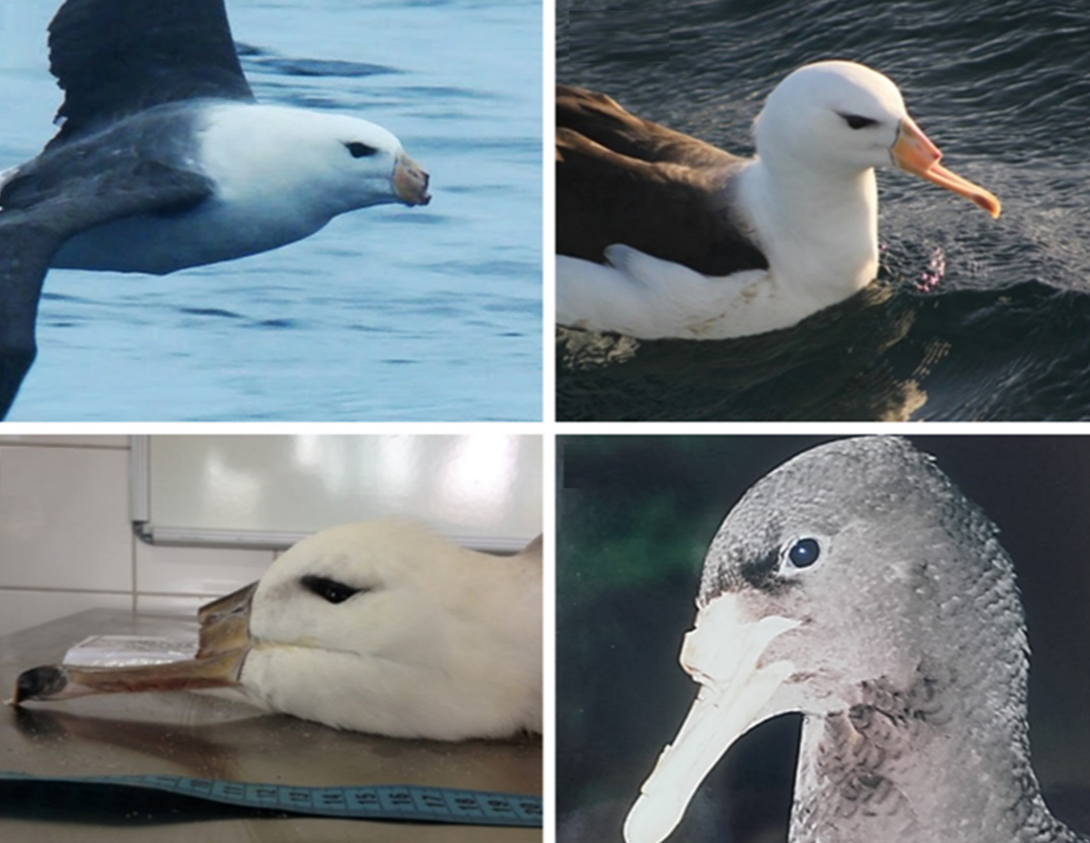UPDATED
"We catch up with Dimas Gianuca, ATF Team Leader and Scientific Coordinator for Projeto Albatroz in Brazil, about his new paper on the 'Intentional Killing and Extensive Aggressive Handling of Albatrosses and Petrels at Sea in the Southwestern Atlantic Ocean'. We talk about the findings of the paper, what this means for albatross conservation in the Atlantic and what the ATF are doing to combat this behaviour" - Albatross Task Force

Bill mutilations reported in the publication from the south-western Atlantic
Dimas Gianuca (Projeto Albatroz & Albatross Task Force/Brazil, Santos, Brazil) and colleagues have reporteded in the journal Biological Conservation on 46 albatrosses and petrels found mutilated in the south-western Atlantic off South America.
The paper’s abstract follows:
“Large Procellariiformes (albatrosses and petrels) constitute a highly threatened group of birds, for which bycatch in fisheries is the most prevalent threat. At-sea intentional killing and post-capture, handling-related injuries, remain poorly understood menaces. Here, we report fishermen off southern Brazil trying to reduce bait depredation in pole-and-line and handlining fisheries by hitting birds with a metal piece attached to a pole-and-line on four occasions. Fishermen also mutilated or killed birds caught alive on the lines (aggressive handling). In addition, we present a compilation of records of Procellariiformes with bill mutilations across the southwest Atlantic Ocean. Related to the intentional killing events, 16 birds of four species (two globally threatened) were recorded dead (n = 13) or injured (n = 3) with head trauma, broken limbs, wounds or bill mutilation. Observations spanning 1999–2019 across the waters of Brazil, Uruguay and Argentina totalize 46 Procellariiformes of eight species (four globally threatened) recorded with bill mutilations (29 alive and 17 dead). Mutilations were likely caused by aggressive handling of birds caught alive, potentially in Brazilian hook-and-line fisheries or in demersal and pelagic longline fisheries across the southwest Atlantic. Observations of deliberate killing from multiple vessels and the recurrent records of mutilated birds suggest those practices represent pervasive but largely undocumented threats to seabirds and could complicate the detection of fishery-related population effects. Coordinated actions by international bodies and national authorities are urgently needed to address this threat, including increasing at-sea observation, enforcement actions and campaigns targeting better handling practices among fishermen.”
See also a post to ACAP Latest News on bill mutilations of albatrosses, and a popular account on the new publication.
With thanks to Dimas Gianuca, Projeto Albatroz.
Reference:
Gianuca, D., Bugoni, L., Jiménez, S., Daudt, N.W., Miller, P., Canani, G., Silva-Costa, A., Faria, F.A., Bastida, J., Seco Pon, J.P., Yates, O., Serafini, P. & Bond, A.L. 2020. Intentional killing and extensive aggressive handling of albatrosses and petrels at sea in the southwestern Atlantic Ocean. Biological Conservation doi.org/10.1016/j.biocon.2020.108817.
John Cooper, ACAP Information Officer, 19 November 2020, updated 01 December 2020

 Français
Français  English
English  Español
Español